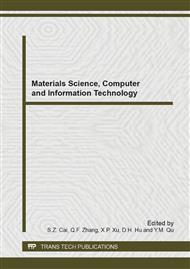p.2605
p.2609
p.2613
p.2617
p.2621
p.2625
p.2629
p.2634
p.2639
Particle Swarm Optimization by Improved Chaos Immune Genetic Algorithm
Abstract:
In order to resolve these problems, we put forward a new design of the intelligent lock which is mainly based on the technology of wireless sensor network. Particle swarm optimization (PSO) is a recently proposed intelligent algorithm which is motivated by swarm intelligence. PSO has been shown to perform well on many benchmark and real-world optimization problems; it easily falls into local optima when solving complex multimodal problems. To avoid the local optimization, the algorithm renews population and enhances the diversity of population by using density calculation of immune theory and adjusting new chaos sequence. The paper gives the circuit diagram of the hardware components based on single chip and describe how to design the software. The experimental results show that the immune genetic algorithm based on chaos theory can search the result of the optimization and evidently improve the convergent speed and astringency.
Info:
Periodical:
Pages:
2621-2624
Citation:
Online since:
July 2014
Authors:
Keywords:
Price:
Сopyright:
© 2014 Trans Tech Publications Ltd. All Rights Reserved
Share:
Citation:


